According to a disclosure by the Financial Supervisory Service on the 20th, Youngjin Pharmaceutical posted separate sales and operating income of KRW 252 billion and KRW 8.7 billion won last year, up 7.3% and 179.8%, respectively, from the previous year. Net profit also returned to the black, reaching KRW 1.2 billion.
“Sales increased in domestic sales, global sales, and custodial business, and net profit turned positive through improved profitability,” Youngjin Pharmaceutical explained.
Youngjin Pharmaceutical has been mired in capital erosion during the COVID-19 pandemic. The company has focused on exporting raw materials and finished pharmaceutical products overseas, which has been hit hard by the pandemic. To add insult to injury, the company's export share fell to 14.72% from 28% when its contract with Japanese pharmaceutical giant 'Sawai' to supply Seppa antibiotics ended in 2021.
In fact, the company's revenue shrank from KRW 225.2 billion in 2019 to KRW 208.5 billion in 2020 and KRW 196.1 billion in 2021. Operating profit also plummeted from KRW 10 billion in 2019 to KRW 400 million in 2020. The following year, 2021, the company lost KRW 13.9 billion.
In 2022, the company's revenue increased to KRW 218.3 billion, but it still incurred an operating loss of KRW 7.3 billion and fell into capital erosion. The company's capital erosion rate at that time was 1.72%.
The following year, 2023, the company posted a capital erosion rate of 1.98%, but both revenue and operating profit grew. The company's revenue for the year was KRW 234.9 billion, up 7.6% from the previous year, and higher than 2019, the year before the pandemic. Operating profit, in particular, turned positive at KRW 3.1 billion.
The company has been able to increase sales and operating income as well as net profit since last year, eliminating capital erosion and entering a full-fledged growth phase.
The steady growth of Youngjin Pharmaceuticals is attributed to its aggressive sales focus on products that are effective in reducing costs. In particular, sales of antibiotics and intravenous and enteral nutrition products, which are core items, increased steadily. Specifically, sales of antibiotics increased to KRW 30.6 billion in 2021, KRW 42.7 billion in 2022, and KRW 46.2 billion in 2023. Intravenous and enteral nutrition products generated sales of KRW 29.8 billion in 2021, KRW 37 billion in 2022, and KRW 42.1 billion in 2023.
The reopening of export routes in time for the end of the pandemic also played a role. In the third quarter of last year, the company's sales in this segment increased by 40.8% year-on-year to KRW 6.4 billion due to an increase in exports of Cepha antibiotics to major Japanese customers.
The company plans to expand its global contract manufacturing organization (CMO) business by increasing its capacity (CAPA). Since September 2022, Youngjin Pharmaceutical has been expanding its antibiotic injection control unit at its Namyang plant. The expansion work was completed on December 27 last year, and the company has an annual antibiotic capa of 20 million vials.
Thanks to this, the company has secured additional sources of income in the global market. In September last year, the company signed a contract with China's Zhongshan Belling Biotechnology to export cefcarfen granular finished drug worth KRW 99.5 billion over the next 10 years. The market expects the product to be licensed by China's National Medical Products Administration (NMPA) around the first half of next year.
An official from Youngjin Pharmaceutical said, “We are expanding our CMO business to strengthen our competitiveness in the domestic pharmaceutical market and explore overseas markets such as Japan and China.” “In the future, we will strive to secure profitability by expanding sales centered on antibiotic injections and raw materials, and discovering new businesses, various items, and new customers.”
Kim Nayoung, Korea Finacial Times (steaming@fntimes.com)











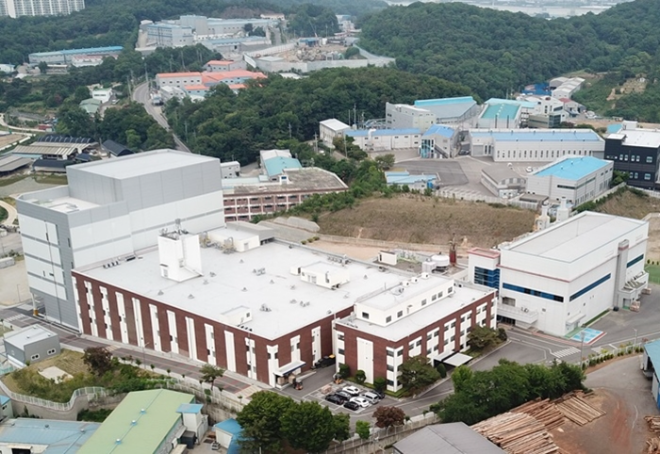
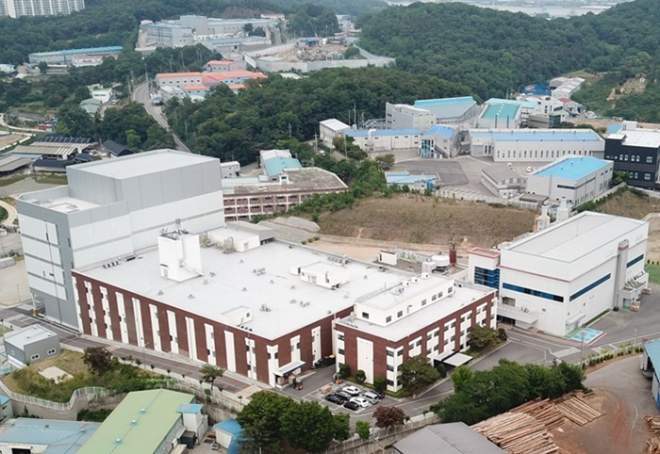




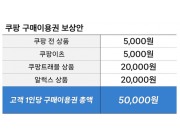

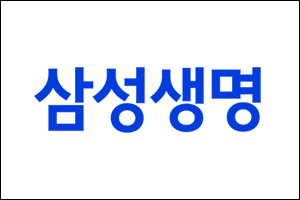








![12개월 최고 연 3.20%…SC제일은행 'e-그린세이브예금' [이주의 은행 예금금리-12월 4주]](https://cfnimage.commutil.kr/phpwas/restmb_setimgmake.php?pp=006&w=69&h=45&m=5&simg=2025122608443302837300bf52dd2121131180157.jpg&nmt=18)
![삼성SDI 최주선 “기술·실력으로 보답” 약속지켰다 [올해의 CEO]](https://cfnimage.commutil.kr/phpwas/restmb_setimgmake.php?pp=006&w=69&h=45&m=5&simg=2025122822092302607dd55077bc2118218214118.jpg&nmt=18)

![두산 박정원, 창업 130주년 앞둔 미래 ‘승부수ʼ [올해의 CEO]](https://cfnimage.commutil.kr/phpwas/restmb_setimgmake.php?pp=006&w=69&h=45&m=5&simg=2025122822054709057dd55077bc2118218214118.jpg&nmt=18)
![메리츠캐피탈, 신설 리테일총괄임원에 김정현 KB캐피탈 전무 영입…자동차금융 강화 [캐피탈사 경쟁력 강화]](https://cfnimage.commutil.kr/phpwas/restmb_setimgmake.php?pp=006&w=69&h=45&m=5&simg=20251227212421083198a55064dd112114311666.jpg&nmt=18)
![기관 '삼성전자'·외인 '삼성전자'·개인 '한화오션' 1위 [주간 코스피 순매수- 2025년 12월22일~12월26일]](https://cfnimage.commutil.kr/phpwas/restmb_setimgmake.php?pp=006&w=69&h=45&m=5&simg=2025122723164302945179ad439072211389183.jpg&nmt=18)
![iM·BNK·JB금융지주, 다양성·전문성 ‘탄탄'…소비자보호 ‘숙제' [금융지주 이사회 점검]](https://cfnimage.commutil.kr/phpwas/restmb_setimgmake.php?pp=006&w=69&h=45&m=5&simg=2025122808195103943dd55077bc2118218214118.jpg&nmt=18)
![기관 '알테오젠'·외인 '알테오젠'·개인 '알지노믹스' 1위 [주간 코스닥 순매수- 2025년 12월22일~12월26일]](https://cfnimage.commutil.kr/phpwas/restmb_setimgmake.php?pp=006&w=69&h=45&m=5&simg=2025122723363903316179ad439072211389183.jpg&nmt=18)
![부동산 경기 ‘꽁꽁’ 얼었지만 현대·대우건설 존재감 ‘뿜뿜’ [2025 건설결산 ④]](https://cfnimage.commutil.kr/phpwas/restmb_setimgmake.php?pp=006&w=69&h=45&m=5&simg=2025122822371509248dd55077bc2118218214118.jpg&nmt=18)
![정성재號 BNK벤처투자, 부·울·경 ‘회수 모멘텀ʼ [VC 회수 점검(8)]](https://cfnimage.commutil.kr/phpwas/restmb_setimgmake.php?pp=006&w=69&h=45&m=5&simg=2025122808345803944dd55077bc2118218214118.jpg&nmt=18)











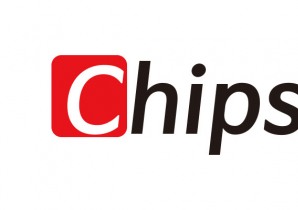
![[카드뉴스] KT&G, 제조 부문 명장 선발, 기술 리더 중심 본원적 경쟁력 강화](https://cfnimage.commutil.kr/phpwas/restmb_setimgmake.php?pp=006&w=298&h=298&m=1&simg=202509241142445913de68fcbb3512411124362_0.png&nmt=18)
![[카드뉴스] KT&G ‘Global Jr. Committee’, 조직문화 혁신 방안 제언](https://cfnimage.commutil.kr/phpwas/restmb_setimgmake.php?pp=006&w=298&h=298&m=1&simg=202503261121571288de68fcbb3512411124362_0.png&nmt=18)
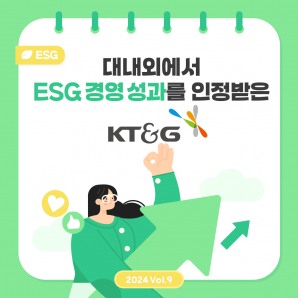

![[카드뉴스] 국립생태원과 함께 환경보호 활동 강화하는 KT&G](https://cfnimage.commutil.kr/phpwas/restmb_setimgmake.php?pp=006&w=298&h=298&m=1&simg=202403221529138957c1c16452b0175114235199_0.png&nmt=18)
![[신간] 고수의 M&A 바이블](https://cfnimage.commutil.kr/phpwas/restmb_setimgmake.php?pp=006&w=81&h=123&m=5&simg=2025091008414900330f8caa4a5ce12411124362.jpg&nmt=18)
![[신간] 리빌딩 코리아 - 피크 코리아 극복을 위한 생산성 주도 성장 전략](https://cfnimage.commutil.kr/phpwas/restmb_setimgmake.php?pp=006&w=81&h=123&m=5&simg=2025032814555807705f8caa4a5ce12411124362.jpg&nmt=18)
![[서평] 추세 매매의 대가들...추세추종 투자전략의 대가 14인 인터뷰](https://cfnimage.commutil.kr/phpwas/restmb_setimgmake.php?pp=006&w=81&h=123&m=5&simg=2023102410444004986c1c16452b0175114235199.jpg&nmt=18)

![[신간] 조금 느려도 괜찮아...느림 속에서 발견한 마음의 빛깔](https://cfnimage.commutil.kr/phpwas/restmb_setimgmake.php?pp=006&w=81&h=123&m=5&simg=20251105082239062852a735e27af12411124362.jpg&nmt=18)

![[AD] 기아 ‘PV5’, 최대 적재중량 1회 충전 693km 주행 기네스 신기록](https://cfnimage.commutil.kr/phpwas/restmb_setimgmake.php?pp=006&w=89&h=45&m=1&simg=20251105115215067287492587736121125197123.jpg&nmt=18)
![[카드뉴스] KT&G, 제조 부문 명장 선발, 기술 리더 중심 본원적 경쟁력 강화](https://cfnimage.commutil.kr/phpwas/restmb_setimgmake.php?pp=006&w=89&h=45&m=1&simg=202509241142445913de68fcbb3512411124362_0.png&nmt=18)
![[AD]‘황금연휴에 즐기세요’ 기아, ‘미리 추석 페스타’ 이벤트 실시](https://cfnimage.commutil.kr/phpwas/restmb_setimgmake.php?pp=006&w=89&h=45&m=1&simg=20250903093618029117492587736121166140186.jpg&nmt=18)
![[AD]‘패밀리카 선두 주자’ 기아, ‘The 2026 카니발’ 출시](https://cfnimage.commutil.kr/phpwas/restmb_setimgmake.php?pp=006&w=89&h=45&m=1&simg=2025081810452407346749258773621116810840.jpg&nmt=18)
![[AD] ‘상품성↑가격↓’ 현대차, 2025년형 ‘아이오닉 5’·‘코나 일렉트릭’ 출시](https://cfnimage.commutil.kr/phpwas/restmb_setimgmake.php?pp=006&w=89&h=45&m=1&simg=202505131018360969274925877362115218260.jpg&nmt=18)



